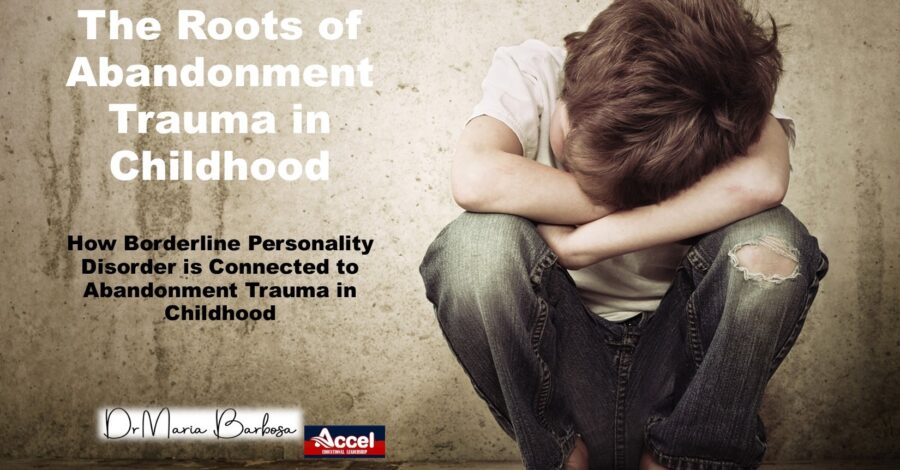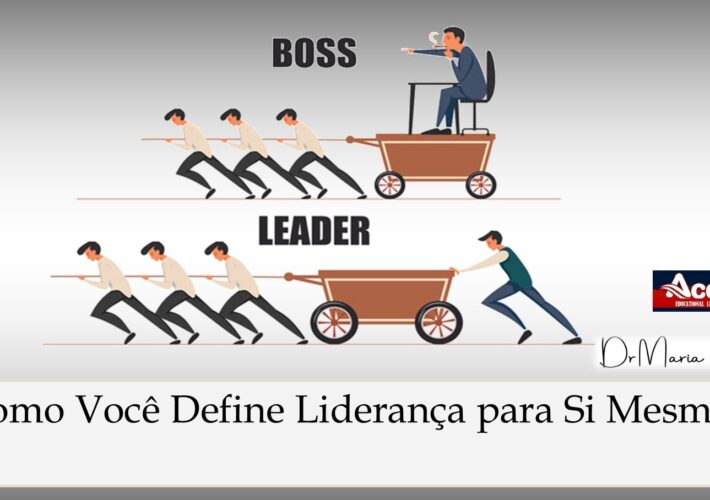Understanding How the Trauma of Abandonment in Childhood Shapes Your Unconscious and Cognitive Mind
Childhood is a critical period in our lives when our unconscious and cognitive minds are profoundly shaped by our experiences. Among the most impactful of these experiences is the trauma of abandonment. Whether through physical separation, emotional neglect, or the perception of being left behind, abandonment during childhood leaves deep imprints that can affect our psychological and emotional well-being throughout adulthood. In this article, we will explore how the trauma of abandonment is created in your unconscious and cognitive mind, and how it influences your behavior, thoughts, actions, decisions and emotions.
The Roots of Abandonment Trauma in Childhood
Abandonment trauma often begins early in life, typically in childhood when a child is most vulnerable and dependent on caregivers for survival and emotional support. The trauma can stem from various forms of neglect or separation, such as:
- Physical Abandonment: This occurs when a child is physically left alone, whether through parental separation, divorce, or death or another situation. The absence of a primary caregiver can create a sense of instability and fear, leaving the child feeling unsafe and unprotected.
- Emotional Abandonment: Even when caregivers are physically present, emotional neglect can occur. This type of abandonment involves caregivers being emotionally unavailable, dismissive, or inconsistent in their attention and affection. The child may feel unseen, unheard, or unloved, leading to feelings of worthlessness and insecurity.
- Perceived Abandonment: Sometimes, the trauma of abandonment can be perceived rather than actual. For example, a child might feel abandoned if a caregiver is preoccupied with work, illness, or other responsibilities, even if the caregiver has not physically or emotionally neglected the child.
- These experiences of abandonment are deeply ingrained in the child’s psyche and can have lasting effects on their unconscious mind, shaping their cognitive processes and emotional responses.
How Abandonment Trauma Impacts the Unconscious Mind
The unconscious mind is a reservoir of thoughts, memories, and emotions that lie beneath the surface of our conscious awareness. The trauma of abandonment during childhood can become lodged in the unconscious, influencing our behavior and reactions in ways we may not even realize.
- Attachment Styles: One of the most significant ways abandonment trauma manifests in the unconscious mind is through the development of attachment styles. Children who experience abandonment may develop an anxious or avoidant attachment style, characterized by a deep fear of being left alone or an inability to trust others. These attachment styles often persist into adulthood, affecting relationships and social interactions.
- Core Beliefs: Abandonment trauma can also lead to the formation of negative core beliefs about oneself and others. A child who feels abandoned may unconsciously internalize beliefs such as “I am unlovable,” “People will always leave me,” or “I am not good enough.” These beliefs can become self-fulfilling prophecies, influencing how individuals perceive themselves and their interactions with others.
- Defense Mechanisms: To protect themselves from the pain of abandonment, individuals may develop unconscious defense mechanisms such as denial, repression, or projection. These mechanisms serve to shield the individual from the full impact of their trauma but can also hinder emotional growth and healing.
The Cognitive Effects of Childhood Abandonment
While the unconscious mind is shaped by the hidden effects of abandonment trauma, the cognitive mind—responsible for conscious thought, reasoning, and decision-making—is also affected. The trauma of abandonment can influence cognitive processes in several ways:
- Hypervigilance: Individuals who have experienced abandonment trauma may develop a heightened sense of alertness and sensitivity to potential threats. This hypervigilance is a cognitive response to the perceived danger of being left alone again and can lead to anxiety, stress, and difficulty in relaxing or trusting others.
- Negative Thought Patterns: The core beliefs formed in the unconscious mind often give rise to negative thought patterns in the cognitive mind. For example, someone with abandonment trauma might frequently engage in catastrophic thinking, assuming the worst in situations where they feel vulnerable or unsupported. This can lead to a cycle of negative self-talk, rumination, anger, and depression.
- Cognitive Distortions: Abandonment trauma can also result in cognitive distortions—irrational or exaggerated thoughts that reinforce feelings of fear, inadequacy, or helplessness. Examples of cognitive distortions include black-and-white thinking (“If they leave, it means I’m worthless”), overgeneralization (“Everyone will abandon me eventually”), and personalization (“It’s my fault they left”).
- Difficulty in Decision-Making: The trauma of abandonment can also impact an individual’s ability to make decisions confidently. Fear of making the wrong choice or being judged by others can paralyze decision-making processes, leading to indecision, procrastination, and self-doubt.
The Long-Term Consequences of Childhood Abandonment Trauma
The trauma of abandonment in childhood is not something that simply goes away as we grow older. Instead, it can have long-term consequences that affect various aspects of our lives, including:
- Relationships: Individuals with abandonment trauma may struggle with forming and maintaining healthy relationships. They may become overly dependent on others, seeking constant reassurance and validation, or they may avoid intimacy altogether, fearing rejection and further abandonment.
- Self-Esteem: The negative core beliefs and cognitive distortions resulting from abandonment trauma can severely impact self-esteem. Individuals may struggle with feelings of inadequacy, unworthiness, and self-doubt, which can hinder their personal and professional growth.
- Mental Health: Abandonment trauma is often linked to various mental health issues, including anxiety, depression, and post-traumatic stress disorder (PTSD). The unresolved trauma can lead to chronic emotional pain, mood swings, and difficulty in managing stress.
- Behavioral Patterns: The unconscious and cognitive effects of abandonment trauma can manifest in maladaptive behavioral patterns, such as substance abuse, self-sabotage, or compulsive behaviors. These behaviors are often attempts to cope with the unresolved trauma but can lead to further harm and dysfunction.
Healing from Abandonment Trauma
Healing from the trauma of abandonment requires a comprehensive approach that addresses both the unconscious and cognitive effects of the trauma. Some strategies for healing include:
- Therapy: Working with a therapist who specializes in trauma can help individuals uncover and process the unconscious memories and emotions associated with abandonment. Cognitive-behavioral therapy (CBT) and Get-Up-and Go Holistic Therapy (GUAGHT) can also help in identifying and challenging negative thought patterns and cognitive distortions.
- Mindfulness and Meditation: Practices such as mindfulness and meditation can help individuals become more aware of their unconscious thoughts and emotions, allowing them to process and release the pain of abandonment in a safe and controlled manner.
- Building Healthy Relationships: Developing secure and supportive relationships can help individuals heal from abandonment trauma. Surrounding oneself with people who are trustworthy, empathetic, and consistent can help rebuild trust and attachment.
- Self-Compassion: Cultivating self-compassion is essential in healing from abandonment trauma. Individuals need to recognize that their trauma does not define them and that they are deserving of love, care, and kindness.
How Borderline Personality Disorder is Connected to Abandonment Trauma in Childhood
Borderline Personality Disorder (BPD) is a complex mental condition that deeply affects an individual’s emotional life and interpersonal relationships. Among the many causes and factors contributing to the development of BPD, abandonment trauma in childhood stands out as one of the most significant. This article will explore in detail how childhood abandonment trauma is closely linked to the development of BPD, examining the underlying psychological mechanisms and the long-term consequences.
What is Borderline Personality Disorder?
Borderline Personality Disorder is characterized by a persistent pattern of instability in interpersonal relationships, self-image, and emotions. Individuals with BPD often experience intense emotions, impulsivity, and a chronic sense of emptiness. They may also struggle to maintain stable relationships, displaying anxious attachment behaviors and an extreme fear of abandonment.
The Connection Between Abandonment Trauma and BPD
Impact on Emotional Development
Childhood abandonment trauma has a direct impact on a child’s emotional development. When a child experiences abandonment, they may internalize feelings of insecurity, low self-esteem, and worthlessness. These feelings can persist into adulthood, manifesting as the core symptoms of BPD, such as emotional instability and chronic fear of abandonment.
Formation of Attachment Patterns: The attachment patterns a child develops with their caregivers are crucial to their future mental health. Children who experience abandonment often develop disorganized attachment, where the caregiver is simultaneously a source of comfort and fear. In adulthood, this can manifest as chaotic and tumultuous relationships, which are typical characteristics of individuals with BPD.
Cycles of Self-Destructive Behavior: Individuals with BPD often exhibit self-destructive behaviors as a way to cope with intense emotional pain. These behaviors may include self-harm, substance abuse, and other impulsive actions. Childhood abandonment trauma can exacerbate these behaviors, as feelings of rejection and helplessness may lead to desperate attempts to gain attention or relieve emotional pain.
Long-Term Psychological Effects
Cognitive Distortions: Childhood abandonment trauma can lead to the development of cognitive distortions in adulthood, where the individual misinterprets neutral or ambiguous situations as rejection or abandonment. These distortions fuel the cycle of emotional instability and impulsive behaviors characteristic of BPD.
Anxiety and Depression: Childhood abandonment is also strongly linked to the development of anxiety and depression in adulthood. The persistent feeling of being unloved or unaccepted can lead to deep feelings of sadness and despair, which often coexist with BPD.
Therapeutic Approaches
Dialectical Behavior Therapy (DBT)
One of the most effective approaches to treating BPD is Dialectical Behavior Therapy (DBT). This therapy combines strategies of acceptance and change, helping patients regulate their emotions, develop healthy interpersonal skills, and manage self-destructive behaviors.
Trauma-Focused Therapy: For those whose BPD history is strongly linked to childhood abandonment trauma, trauma-focused therapy can be particularly beneficial. This approach aims to help patients process and integrate traumatic experiences, reducing their impact on behavior and mental health.
Conclusion
The connection between childhood abandonment trauma and Borderline Personality Disorder is deep and multifaceted. Understanding this relationship is crucial for developing effective therapeutic strategies that can help individuals overcome the devastating effects of trauma and lead a more balanced and healthy life.
Dr. Barbosa provides services to client in Portuguese, English and Spanish. for an appointment -WhatsApp (386)206-6325
Maria Pinto Barbosa PhD / Certified as School Board of Education / PHD-Doctor of Philosophy in Cristian Clinical Counseling- ACCEL-Holistic Life Coach / Founder-Director of ACCEL Educational Leadership/ Specialized on Temperaments – Personalities/ Pastor Christian Minister Clergy / Bachelor of Theology in Pastoral leadership and Certified EETAD Theolog
Discover more from Dr Maria Barbosa
Subscribe to get the latest posts sent to your email.





